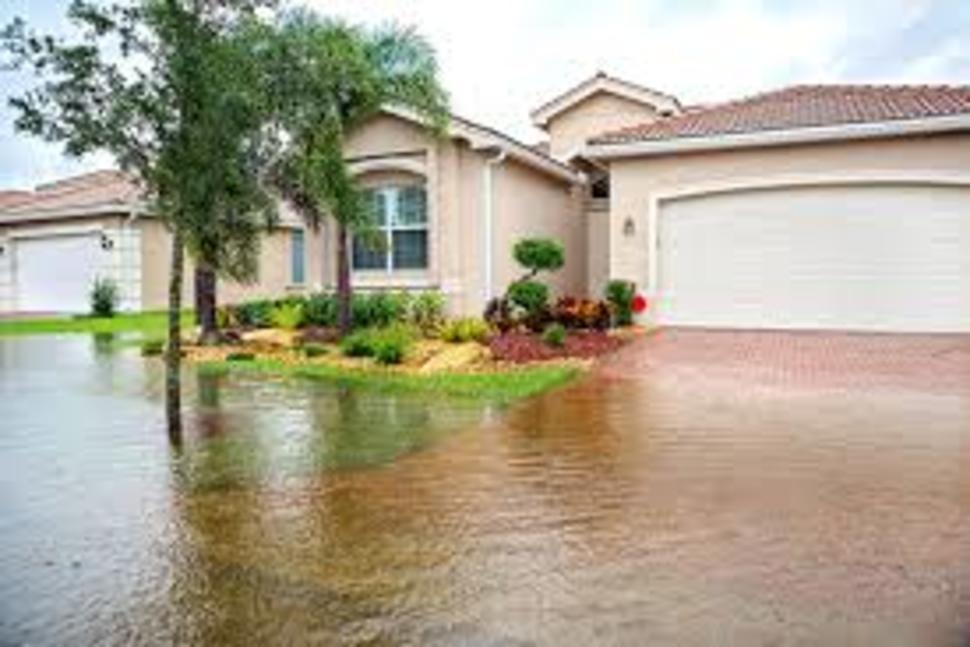
Purchase Health Insurance Online Today
January 17, 2022
Water Damage Insurance Claims vs Flood Insurance Claims
January 28, 2022Often a quick afterthought, Homeowners Insurance should be afforded the research, time, and energy that is put into purchasing a home, after all, this is what protects your investment. Homeowners insurance deserves more careful consideration because choosing the right policy can prevent financial ruin after a major disaster strikes.
This article has been written to take you step by step through what you need to know before shopping for a homeowners insurance policy. It will help you determine whether you need homeowners insurance and how much coverage to purchase. A basic understanding of what a Homeowners Insurance covers and what endorsements may be available which may pertain to you. Finally, how to find the most Affordable Homeowners Insurance offering you the protection you and your family need and deserve.
What Is Homeowners Insurance?
A home insurance policy provides coverage to repair or replace your home and its contents following damage caused by fire, smoke, water, theft, vandalism, or any other causes of loss named in the policy. These are called “perils.”
In addition to covering the structure and other structures, basic policies typically cover the repair or replacement of heating and cooling systems and their components, such as a furnace or water heater, if they are damaged by a covered peril.
Homeowners insurance also covers personal property that’s damaged, stolen, or destroyed. Finally, homeowners insurance pays for medical and legal expenses if someone other than you or your family is injured on your property, also known as 3rd party coverage.
Do I Need Homeowners Insurance?
If you own a home, you probably need homeowners insurance. In fact, if you plan to finance your home, the bank or mortgage lender will most likely require it. That’s because your lender will want to protect their investment in the event of a fire or other covered catastrophic event. If you don’t have a mortgage, you do not have to insure your home; this would leave you self insuring for the risk of rebuilding the home and/or the exposure to liability risk which could even be greater.
The same applies if you purchase a co-op, a condominium, or a townhome. If you borrow money to make the purchase, your lender will likely require a policy no matter what type of home it is. Condominium or private community associations may also require homeowners insurance to cover common property and facilities, such as a shared roof, common walls, a tennis court, or a swimming pool.
Homeowners insurance is an excellent idea even if your mortgage is paid off, you paid cash, or you inherited your property without a mortgage. Most homeowners don’t have the funds available to rebuild or make substantial repairs if their home is heavily damaged or destroyed. A homeowners policy costs a lot less than rebuilding out of pocket.
Most home insurance policies also include coverage to help replace your furniture, clothing, and other possessions after a fire, storm, or other catastrophic circumstance.
What Does Homeowners Insurance Cover?
Homeowners insurance covers damages or losses to your home, personal belongings, or even individuals injured on your property. Here’s a breakdown of the standard coverage offered to a homeowners insurance policyholder:
- Dwelling coverage: Homeowners insurance covers damages done to your home caused by fire smoke, theft, vandalism, or severe weather. Although damages from lightning, wind, and hail are typically covered, you will need to buy separate insurance for floods and earthquakes. Coverage extends to other detached structures on your property, like a garage, barn, or shed.
- Personal property coverage: Homeowners insurance also covers your personal belongings, including furniture, appliances, electronics, and clothing. Reimbursement for lost or damaged belongings can either be for the full replacement value or the actual cash value of the item after depreciation. You may need to pay for higher premiums or purchase additional coverage for valuable belongings, like art and jewelry.
- Personal liability coverage: A homeowners insurance policy can help protect you if someone is injured on your property. If you are sued, your policy can help pay for your legal expenses and fees. If they are injured, it can also cover their medical expenses, including X-rays, ambulance rides, and hospital stays.
- Living expenses: This coverage will help pay for expenses if you are displaced from your home as a result of a covered condition. This can include fire, tornado, or other immediate or imminent hazard because of which local authorities bar you from your neighborhood.
In addition to the standard coverage above, homeowners insurance companies usually offer endorsements to their policies or additional insurance to suit specific needs.
Where Do I Buy Homeowners Insurance?
Insurance company websites can help you get started when shopping for homeowners insurance, and most describe what is and isn’t covered and what options are available. Many also have estimating tools that give you an idea of what your cost will be once you enter basic information about your home and its contents.
The details may not always be easy to find all the coverage specifics you’re looking for; this complexity is one reason to consider working with a licensed insurance agent in your area who can help you tailor a policy to your needs. Dedicated agents work exclusively with one company, while independent agents can obtain quotes from numerous companies. Either way, a good agent can be a significant asset, especially if you’re a first-time buyer.
“It’s a good idea to get professional assistance to guide you through the process,” says Doug Ommen, insurance commissioner for the Iowa Insurance Division. But he also urges consumers to do their own research when looking for an agent and an insurance company.
State insurance agency websites are a good place to look for recommendations, reviews, and complaints. The National Association of Insurance Commissioners website is also a useful resource.
Mistakes to Avoid When Buying Homeowners Insurance
Although it might be tempting to get a bare-bones policy to save money on premium, this could come back to haunt you later. “Probably the biggest mistake that people make when buying homeowners insurance is to focus on price rather than coverage or quality,” says Professor Jay Feinman, an insurance expert with Rutgers University Law School. “You need to understand the type of insurance you’re buying, what is covered, and what is not.”
To avoid unpleasant surprises, buy a policy sufficient to replace or rebuild your home and any outbuildings such as a garage, pool, or fence, as well as your home’s contents. That includes heating and cooling systems, furniture, clothing, and your other possessions. “Two-thirds of American homes are significantly underinsured,” Feinman says. “Try to get an accurate idea of what the actual costs would be to rebuild.” He noted that those costs can be higher in the wake of a major event. “When many people need to rebuild at once, costs go up dramatically,” he says.
It’s also important to read your policy carefully and understand exactly what is and is not covered. If coverage for something you’re concerned about isn’t specifically mentioned, such as damage from a falling tree, ask for a written statement clarifying the issue.
Last, but not least, periodically review your policy to continue to get the best rates. Home insurance companies tend to tack on rate increases each year for various reasons, such as inflation, increases in the value of your home, and other factors. They’re usually small enough adjustments that you don’t notice them but they can add up over time, this is completely expected.
You can also ask the company you’re currently with if they have a loyalty discount. Some companies will lower your premiums a certain percentage depending upon how long you stay with them. These discounts are almost always automatically applied by the carrier as they have your track data if you are a loyal customer.
How Much Does Homeowners Insurance Cost?
Home Insurance costs can vary greatly depending on a variety of factors, including the age, size, and location of your home, and the likelihood of a major weather event in your area. Premiums average $100-$170 per month for the companies we rated.
“Where you live and the natural disasters afflicting that area are a big factor,” says Lynne McChristian, communications consultant at the Insurance Information Institute. In particular, living in an area prone to floods can make home insurance quite expensive. Homeowners insurance is also likely to cost more in areas with higher crime rates, higher rebuilding costs, or stricter building codes. And a home in an area with a volunteer fire department located miles away may cost more to insure than one with a nearby fire station staffed by professionals.
Other things that may affect homeowners insurance premiums include the age and condition of the roof, furnace, and other major home components. Security systems and fire alarms can lower premiums. The need for additional coverage to cover very valuable possessions can add to the cost of a standard premium. Finally, your monthly insurance premiums will probably be affected by the size of your deductible, or the amount you pay out of pocket if you file a claim. Generally, the higher the deductible, the lower your premiums will be.
Even if you already have homeowners insurance, it’s still a good idea to review your coverages and costs annually. Coverage needs change over time as the real estate market fluctuates and you make additional purchases. In addition, home insurance is a competitive business, and comparing rates every year could save you money even if you’re generally happy with your current insurer.
How Do I Buy Homeowners Insurance?
To buy a homeowners insurance policy, whether you’re a first-time homeowner or have owned a home for years, you need to decide what you want to cover, determine how much insurance you need, and choose an insurance company and policy.
In summary, when purchasing homeowners insurance, take the following steps:
- Decide what you want to cover.
- Determine how much homeowners insurance you need.
- Choose an insurance company.
- Choose a policy.
How Do I Decide What to Cover?
Standard homeowners insurance coverage may not be sufficient to repair or replace your home and possessions. That’s especially true if rebuilding costs are higher than average in your area or you have particularly expensive clothing, kitchen appliances, or other items. If one of these circumstances applies to you, consider purchasing additional coverage, as most policies are customizable to meet individual needs.
For example, a standard homeowners insurance policy may not include things like valuable jewelry, artwork, or collectibles. Other items like a swimming pool that pose a safety and liability risk might also require additional coverage.
In addition, standard home insurance policies don’t include flood insurance. Depending on where you live, flood insurance may not even be available through all insurers. If your homeowners insurance company doesn’t offer flood insurance, you may be eligible for coverage through the National Flood Insurance Program, administered by the Federal Emergency Management Agency.
NFIP policies are offered through independent agents nationwide. Costs and requirements can vary widely, depending on the risk factors where you live. FEMA’s website includes an interactive flood map that can help you determine the risk in your area.
How Do I Determine How Much Homeowners Insurance I Need?
To determine how much coverage you need, calculate the replacement cost for your home and any outbuildings, or structures such as a garage, pool, or fence. You’ll also want to inventory and appraise your furniture, clothing, and possessions.
Don’t forget to include outdoor furniture and equipment such as a barbecue grill, along with collectibles, musical instruments, and hobby or sporting equipment. And remember anything tucked out of sight, such as linens and silverware, as well as items stored in the attic or the garage.
The project isn’t as daunting as it might seem, and a licensed insurance agent can help walk you through it. You can also find a lot of information about making an inventory and a host of other homeowners insurance-related subjects on the websites of the organizations like the Insurance Information Institute.
To get a rough idea of the replacement cost for your home, multiply the square footage by the local building costs per square foot in your area. For example, if your home is 2,200 square feet and local building costs average $150 per square foot, the cost to rebuild your home would be about $330,000. A local insurance agent, real estate agent, or appraiser can probably help determine local building costs by utilizing software which is uniform to the construction industry.
When taking your inventory, remember that the more detail you provide, the better. The Insurance Information Institute says it’s a good idea to note when and where you purchased expensive items, because the better your documentation, the easier it will be to estimate replacement cost and file a claim.
Consider walking through each room in your home with a video camera to document what you own, and remember to update your inventory periodically. There are also apps you can download that will walk you through the process and remotely store your inventory.
Finally, factor in replacement costs, not what you actually paid for a piece of clothing or a washing machine. Replacement costs can change quickly due to inflation and other factors, and even a 2-year-old appliance might cost considerably more to replace today than what you paid for it.
How Do I Choose a Homeowners Insurance Company?
When choosing a homeowners insurance company, look for one that:
- provides coverage in your area
- has competitive rates and good discounts
- has a good financial strength rating
- has good reviews from professional sources and customers
- offers 24/7 assistance through its website, live operators, or a local agent.
Choosing the right homeowners insurance company is a matter of selecting one with the coverage you need at a price you can afford, good customer service, and a sound financial footing.
Not all homeowners insurance companies provide coverage in all areas, so check this first to narrow down your choices. Also, some may not offer the standard or specialized coverage you want or need, such as hurricane insurance in a coastal area or additional coverage for collectibles or valuables.
In addition to comparing rates, look for what discounts particular insurance companies offer. Many provide discounts for bundling a homeowners insurance policy with automobile insurance or another policy. Others offer discounts for new customers, first-time home buyers, or homes with a security system, smoke detectors, a sprinkler system, or hurricane shutters.
You can compare rates from different companies by using the estimating tools offered by many homeowners insurance providers on their websites. By keying in some basic information about your home and its contents, you can get an idea of rates from different companies in a matter of minutes.
Financial strength ratings, provided by AM Best and other companies, can give you a good idea of how financially healthy a particular insurance company is. This is important because you’ll want that company to still be in business and able to pay claims should something happen to your home months or years down the road.
Finally, professional ratings and reviews like the U.S. News Best Homeowners Insurance Companies are invaluable for selecting a quality insurance company. Carrier ratings can indicate how responsive a company’s customer service representatives are in processing claims and responding to questions and complaints.

